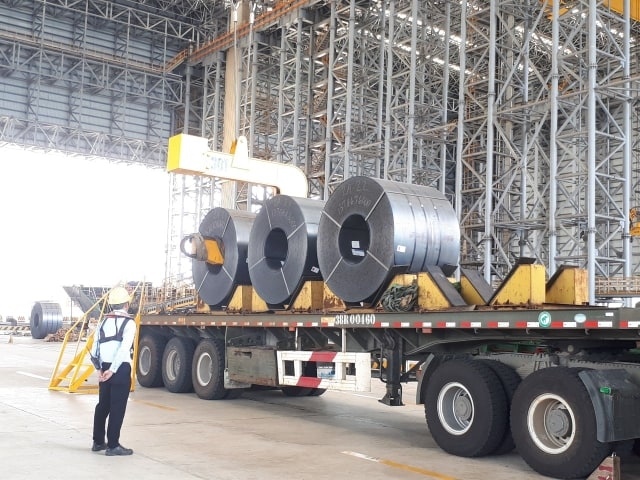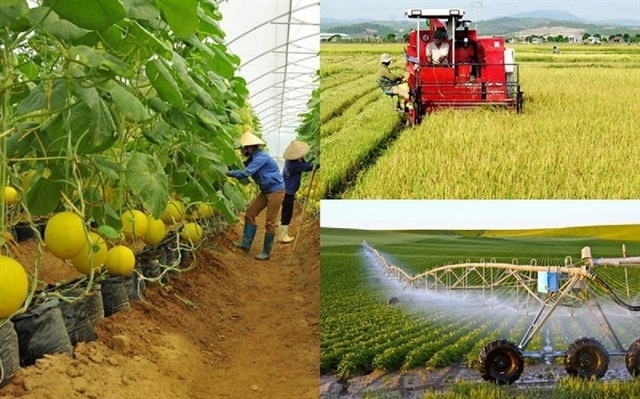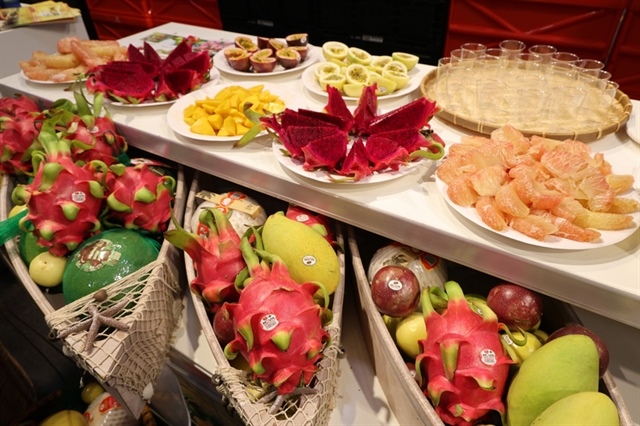HCM City plans more safe farm produce markets
HCM City plans more safe farm produce markets
The HCM City Department of Agriculture and Rural Development plans to set up 10 safe farm produce markets that will open every weekend to bring together producers and buyers of clean agricultural products.

The first market opened in August 2016 at the Dong Ho Restaurant in District 10.
Initially it opened every other week, but now it opens on Saturdays.
Similar markets now operate every Sunday at Le Van Tam park in District 1 and Le Thi Rieng park in District 10.
Each market features around 20 producers and traders selling rice, vegetables, fruits, poultry, pork, and seafood.
Around 500-1,000 people shop at each market every week, bringing in VND175-265 million (US$7,700-11,600) in revenues, according to the department.
Le Ha Mong Ngoc, director of Nam Viet (Vietnamese mushroom) Biotech JSC and head of Nam Viet Co-operative, sells her produce at these markets though they are also sold to major supermarkets.
Selling there is a good way to learn about the market and consumer, she said.
“Customers who shop at these markets are highly aware of food safety and hygiene.”
Over time customers place orders by phone, and their purchases are delivered to their home, she told Nguoi Lao Dong (Labourers) newspaper.
Mai Thi Thuy Trang, owner of Tai Thinh Phat, a prawn, crab and fish supplier to seafood processing and export companies in Ca Mau Province, said though her products meet the very strict requirements of international markets, she still found it difficult to sell locally because consumers did not trust sellers.
“But now, thanks to these markets with strict food safety regulations, customer trust has increased.
“We now can convince consumers easier. As long as we ensure product quality, customers will come back.”
The three safe farm produce markets are running smoothly, and the department plans to have 10 by 2020.
Four more will soon open in Districts 2, 7, Tan Binh, and Binh Tan.
When asked why few such markets are being opened though demand for clean and organic agricultural produce is high, an official from the department’s Centre for Counselling and Support for Agriculture blamed it on the many requirements for setting up a standard market.
He pointed out the location has to be large and needs to have parking space, a place to store traders’ equipment and electricity to refrigerate meat and seafood, yet be affordable for household and small businesses.
The department has called for greater participation in the markets by household businesses and farmers in the Mekong Delta to diversify the products sold.
To qualify as sellers, participants need to prove their products are clean and safe, belong to the city’s safe food chain and meet VietGAP (Vietnamese good agriculture practices) or GlobalGAP standards.
Samples of products sold at the market are regularly collected for tests by the Food Safety Management Board.
Of 540 vegetable and fruit samples it collected over several months starting last July, five were found to have organic phosphate and carbamate exceeding permitted levels.
Their growers have since been banned, and to reenter the markets they have to do another residue test before seeking the department’s permission.
“We have received many applications to participate in these markets. But many businesses cannot provide certifications [for VietGAP standards],” Bui Van My, head of the Centre for Counseling and Support for Agriculture, said.
“Even businesses which have been accepted to the markets can be removed if their certifications expire. They can only resume selling at the markets when their certifications are renewed.”
In the long run, the department plans to privatise these markets and only monitor food safety, he added.






















